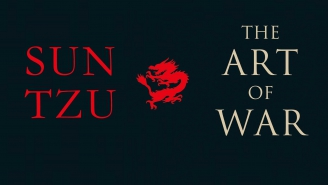 Attending a meeting that involves negotiations or decision-making is very stressful. When the stakes are high - in terms of personal or business gains or losses - our emotions often take over and prevent us from performing optimally. One way to reduce such stress is to prepare carefully and systematically for every important meeting.Here are some tips for preparing yourself for a key meeting or negotiation.1. Write down what you want to say. Many people think that they don’t need to write down anything - that their knowledge and experience will allow them to find the right words in every situation. Big mistake I do from time to time! Writing down what you intend to say facilitates review and rehearsal, and it allows you to focus on delivering your message in the most effective manner.2. Ask someone you trust to critically appraise your draft version. This stage is essential. Despite the fact that you know a topic inside-out, the particular words and expressions that you use to deliver your message may be unclear or unpersuasive. Your direct manager or a colleague who is honest and forthcoming can perform an invaluable service by identifying the weak points in your presentation.3. Rehearse your delivery. This may seem like a waste of time - but it certainly is not. Rehearsing allows you to become more comfortable with your text and therefore lowers your stress level. Also, practicing your presentation in front of colleagues can help to ensure that there are no problems with your delivery (as opposed to the text) that will obscure your message.4. Anticipate the responses of other participants. Developing your presentation with great care is very important - but your meeting preparation should not end there. Spend some time trying to predict the responses of the other people in attendance. Failing to anticipate a particular criticism or question could derail an attempt to lead the meeting or negotiation toward your preferred outcome.5. Prepare possible answers to the anticipated responses. Finally, it is helpful to draft some answers to the responses that you anticipate. These answers could be in the form of notes or points rather than full sentences and paragraphs. While it is quite possible that some - or even most - of these answers will not be needed, it is also entirely possible that a ready answer to an anticipated response will give you a strategic advantage that facilitates the achievement of your objective.It is undeniable that such preparations take time. Nevertheless, if the meeting or negotiation could have a significant impact on your personal success or that of your business, the expenditure of time is certainly worthwhile.
Attending a meeting that involves negotiations or decision-making is very stressful. When the stakes are high - in terms of personal or business gains or losses - our emotions often take over and prevent us from performing optimally. One way to reduce such stress is to prepare carefully and systematically for every important meeting.Here are some tips for preparing yourself for a key meeting or negotiation.1. Write down what you want to say. Many people think that they don’t need to write down anything - that their knowledge and experience will allow them to find the right words in every situation. Big mistake I do from time to time! Writing down what you intend to say facilitates review and rehearsal, and it allows you to focus on delivering your message in the most effective manner.2. Ask someone you trust to critically appraise your draft version. This stage is essential. Despite the fact that you know a topic inside-out, the particular words and expressions that you use to deliver your message may be unclear or unpersuasive. Your direct manager or a colleague who is honest and forthcoming can perform an invaluable service by identifying the weak points in your presentation.3. Rehearse your delivery. This may seem like a waste of time - but it certainly is not. Rehearsing allows you to become more comfortable with your text and therefore lowers your stress level. Also, practicing your presentation in front of colleagues can help to ensure that there are no problems with your delivery (as opposed to the text) that will obscure your message.4. Anticipate the responses of other participants. Developing your presentation with great care is very important - but your meeting preparation should not end there. Spend some time trying to predict the responses of the other people in attendance. Failing to anticipate a particular criticism or question could derail an attempt to lead the meeting or negotiation toward your preferred outcome.5. Prepare possible answers to the anticipated responses. Finally, it is helpful to draft some answers to the responses that you anticipate. These answers could be in the form of notes or points rather than full sentences and paragraphs. While it is quite possible that some - or even most - of these answers will not be needed, it is also entirely possible that a ready answer to an anticipated response will give you a strategic advantage that facilitates the achievement of your objective.It is undeniable that such preparations take time. Nevertheless, if the meeting or negotiation could have a significant impact on your personal success or that of your business, the expenditure of time is certainly worthwhile. Preparing for Important Meetings
الأربعاء، 27 أغسطس، 2014 - 20:16 | بواسطة زياد ملحم
 Attending a meeting that involves negotiations or decision-making is very stressful. When the stakes are high - in terms of personal or business gains or losses - our emotions often take over and prevent us from performing optimally. One way to reduce such stress is to prepare carefully and systematically for every important meeting.Here are some tips for preparing yourself for a key meeting or negotiation.1. Write down what you want to say. Many people think that they don’t need to write down anything - that their knowledge and experience will allow them to find the right words in every situation. Big mistake I do from time to time! Writing down what you intend to say facilitates review and rehearsal, and it allows you to focus on delivering your message in the most effective manner.2. Ask someone you trust to critically appraise your draft version. This stage is essential. Despite the fact that you know a topic inside-out, the particular words and expressions that you use to deliver your message may be unclear or unpersuasive. Your direct manager or a colleague who is honest and forthcoming can perform an invaluable service by identifying the weak points in your presentation.3. Rehearse your delivery. This may seem like a waste of time - but it certainly is not. Rehearsing allows you to become more comfortable with your text and therefore lowers your stress level. Also, practicing your presentation in front of colleagues can help to ensure that there are no problems with your delivery (as opposed to the text) that will obscure your message.4. Anticipate the responses of other participants. Developing your presentation with great care is very important - but your meeting preparation should not end there. Spend some time trying to predict the responses of the other people in attendance. Failing to anticipate a particular criticism or question could derail an attempt to lead the meeting or negotiation toward your preferred outcome.5. Prepare possible answers to the anticipated responses. Finally, it is helpful to draft some answers to the responses that you anticipate. These answers could be in the form of notes or points rather than full sentences and paragraphs. While it is quite possible that some - or even most - of these answers will not be needed, it is also entirely possible that a ready answer to an anticipated response will give you a strategic advantage that facilitates the achievement of your objective.It is undeniable that such preparations take time. Nevertheless, if the meeting or negotiation could have a significant impact on your personal success or that of your business, the expenditure of time is certainly worthwhile.
Attending a meeting that involves negotiations or decision-making is very stressful. When the stakes are high - in terms of personal or business gains or losses - our emotions often take over and prevent us from performing optimally. One way to reduce such stress is to prepare carefully and systematically for every important meeting.Here are some tips for preparing yourself for a key meeting or negotiation.1. Write down what you want to say. Many people think that they don’t need to write down anything - that their knowledge and experience will allow them to find the right words in every situation. Big mistake I do from time to time! Writing down what you intend to say facilitates review and rehearsal, and it allows you to focus on delivering your message in the most effective manner.2. Ask someone you trust to critically appraise your draft version. This stage is essential. Despite the fact that you know a topic inside-out, the particular words and expressions that you use to deliver your message may be unclear or unpersuasive. Your direct manager or a colleague who is honest and forthcoming can perform an invaluable service by identifying the weak points in your presentation.3. Rehearse your delivery. This may seem like a waste of time - but it certainly is not. Rehearsing allows you to become more comfortable with your text and therefore lowers your stress level. Also, practicing your presentation in front of colleagues can help to ensure that there are no problems with your delivery (as opposed to the text) that will obscure your message.4. Anticipate the responses of other participants. Developing your presentation with great care is very important - but your meeting preparation should not end there. Spend some time trying to predict the responses of the other people in attendance. Failing to anticipate a particular criticism or question could derail an attempt to lead the meeting or negotiation toward your preferred outcome.5. Prepare possible answers to the anticipated responses. Finally, it is helpful to draft some answers to the responses that you anticipate. These answers could be in the form of notes or points rather than full sentences and paragraphs. While it is quite possible that some - or even most - of these answers will not be needed, it is also entirely possible that a ready answer to an anticipated response will give you a strategic advantage that facilitates the achievement of your objective.It is undeniable that such preparations take time. Nevertheless, if the meeting or negotiation could have a significant impact on your personal success or that of your business, the expenditure of time is certainly worthwhile. 
زياد ملحم
يشغل زياد ملحم منصب “الرئيس التنفيذي للتسويق” لدى أمانة كابيتال (www.amanacapital.com) وهو يشرف على كلّ استراتيجيات التواصل والمراسلة والالتزام بالعملاء والتسويق وطرق تنفيذها وذلك ضمن كل شركات المجموعة والتي تتضمن أمانة للخدمات المالية (المملكة المتحدة)، أمانة للخدمات المالية (دبي)، أمانة للخدمات المعلوماتية (دبي)، أمانة كابيتال – لبنان وأمانة كابيتال – قبرص.















